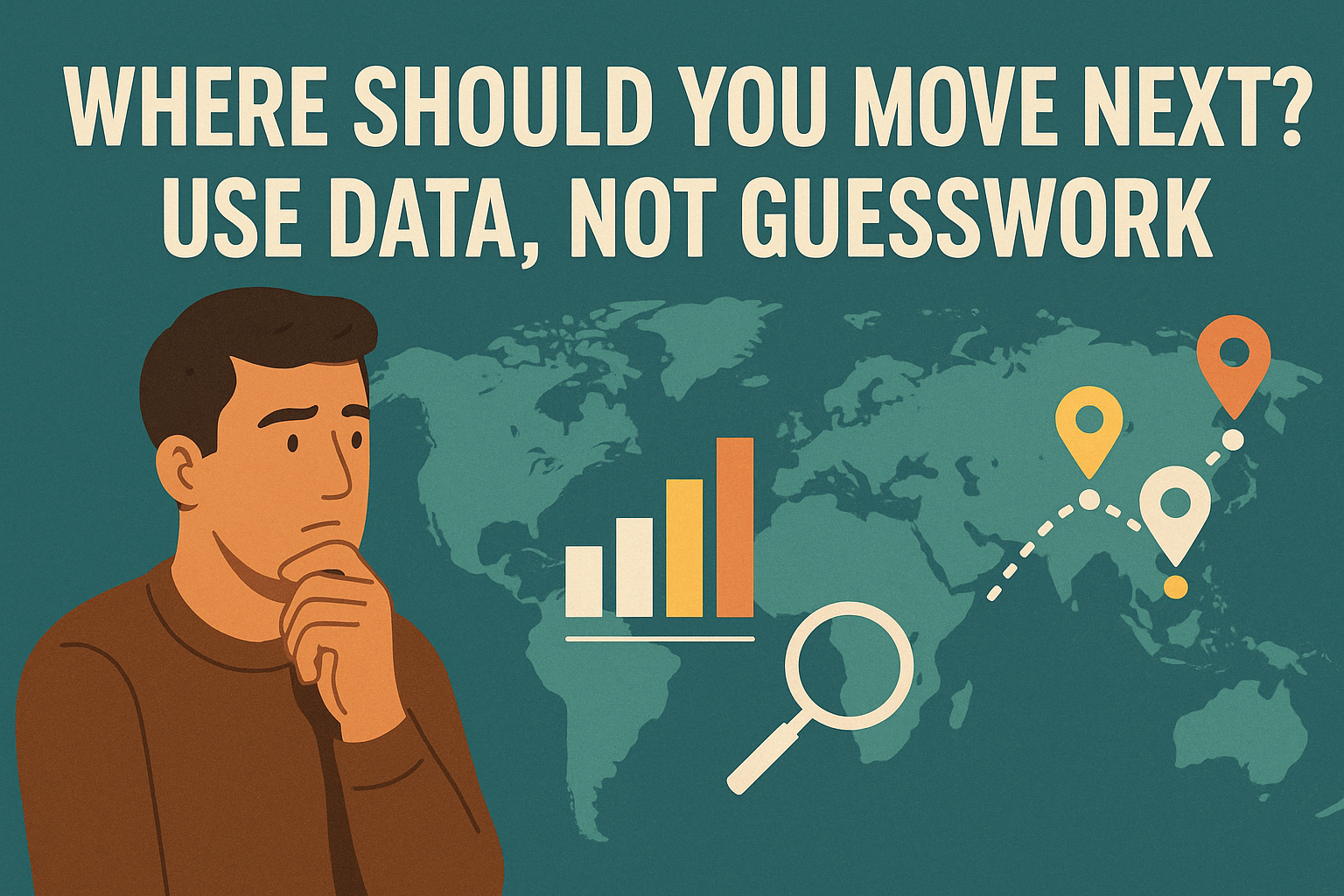Where Should You Move Next? Use Data, Not Guesswork
Choosing where to move—whether across the country or across the world—can feel overwhelming. Most people rely on gut feeling, Instagram inspiration, or word-of-mouth. But if you're serious about upgrading your life, it's time to stop guessing and start comparing.
Here’s how to use real data to choose your next city—backed by numbers, not assumptions.
The Problem With Guesswork
People often make location decisions based on:
- “I heard Berlin is cheap”
- “I think Portugal has a good visa”
- “My friend said Melbourne has better pay”
But here’s what guesswork ignores:
- Rent might be up 30% since last year
- You may not qualify for that visa
- The job market might not match your skills
Step 1: Compare Net Salary After Tax
Gross salary doesn’t tell you what you keep. Our city comparison tool shows:
- Net monthly income
- Local tax rates (including social contributions)
- Industry-specific salary estimates
Example:
$70K in San Francisco vs. $55K in Tallinn?
You might take home more in Estonia—plus your rent is a third of the cost.
Step 2: See What You’ll Actually Spend
It’s not just about how much you earn—it’s about how much you keep.
Compare:
- Rent (1BR central vs. outside center)
- Groceries & transport
- Utilities, phone plans, and health insurance
Want to live comfortably on $3,000/month? Some cities make it easy. Others don’t.
Step 3: Match Cities to Your Lifestyle Goals
Use filters to find cities that align with your life priorities:
| Goal | Compare Cities |
|---|---|
| Remote work hubs | Lisbon, Tallinn, Medellín |
| Great visa options | Canada, Georgia, Portugal |
| LGBTQ+ friendly | Berlin, Amsterdam, Toronto |
| Low crime + healthcare | Tokyo, Vienna, Helsinki |
| Tropical + affordable | Bali, Cebu, Playa del Carmen |
Don’t just guess which city “feels right.”
Find one that matches your real needs.
Step 4: Know Your Visa & Residency Options
Our tool helps you compare:
- Digital nomad visas
- Residency programs
- Citizenship-by-descent
- PR pathways by income/skills
For example, you might learn:
- You already qualify for an Irish passport
- Georgia doesn’t require a visa at all
- Canada offers a 2-year work permit tied to your degree
Step 5: Model Your Monthly Outcome
With our built-in calculator, see:
- Take-home income
- Estimated core expenses
- Monthly savings potential
- Quality of life score based on climate, safety, transit, etc.
This helps you go beyond fantasy—and see what everyday life actually looks like.
Why It Matters
Relocating is expensive.
Visa applications take time.
Moving without clarity = stress and regret.
By using real data, you can move with confidence—and choose a city that fits your goals, not just your feed.
Final Note
Gut instinct matters—but it shouldn’t be the only thing you trust.
With the right comparison tools, you’ll find the city that fits your income, lifestyle, and future.
Try the tool now—compare 3 cities in under 60 seconds and stop guessing.
